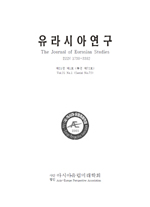- 영문명
- 발행기관
- 아시아.유럽미래학회
- 저자명
- Andrea Henneka
- 간행물 정보
- 『유라시아연구』제3권 제1호, 361~398쪽, 전체 38쪽
- 주제분류
- 사회과학 > 사회과학일반
- 파일형태
- 발행일자
- 2006.06.30
7,360원
구매일시로부터 72시간 이내에 다운로드 가능합니다.
이 학술논문 정보는 (주)교보문고와 각 발행기관 사이에 저작물 이용 계약이 체결된 것으로, 교보문고를 통해 제공되고 있습니다.

국문 초록
The following text documents the first part of a longer article of the author that deals with the policy of education in Germany after 1945 in general and political education in particular. The here presented first part is concentrating on the first twenty years after the end of World War II. The decision of the author to split the article in two parts instead of a rigorous abbreviation of the text was made in order to meet the terms and conditions of the journal as well as to keep the integrity of the whole text. To ensure economical progress as well as social peace among heterogeneous societies, the field of educational policy is a cornerstone in the daily business of a running state today. With respect to its history, the policy of education and especially political education received an accentuated function in Germany, since the end of World War II. Until the founding of the two German States in 1949, it have been the allies, who defined the goals of educational policy in the first years of post-war Germany. But with the upcoming cold war it became clear very quickly, that it would be difficult to act in concert. With the collapse of the allied control council in 1949 it obviously became impossible. Apart from that, the objectives of the educational policy among the west-allies and the soviets during that time have been quite the same, namely to eliminate the national socialist body of thoughts. As a matter of fact, the methods and the process of development in the then two German States, have been different. In the Federal Republic of Germany (FDR), under than chancellor Konrad Adenauer, it was common sense, to overcome the past and to reintegrate the political and economical system of the country in the western community as fast as possible. Therefore, the matters of educational policy primarily have been subordinated to the needs of the economy. For the government of the German Democratic Republic (GDR), it belongs to their political self-image, that the socialistic revolution would bea guarantor to clear the society from all aspects of former national socialism. Speaking provocantly: For the West-Germans, it was the so called Wirtschaftswunder that should prevent their citizens from a backslide to former megalomania, whereas in East Germany it was the ideology of socialism which officially guaranteed a peaceful and prosperous future. With respect to the complex object of investigation and the different trends in the two German States, the focus of the paper is the development in the Federal Republic of Germany. In the first part presented here, the author tries to give a general overview of the situation in post-war Germany after 1945 and the different theories of political education developed by the allies. He tries to outline, that the problems of the existing educational structures in Germany together with the upcoming confrontation between east and west let abandon the west-allies their ambitious plans very quickly in favour of a strong political and economical alliance with West-Germany against the Warsaw Pact. The first time, when the question of guidelines for educational policy came on a broad political agenda was in the beginning sixties, when a serial of anti-semitic smearings shocked the public. The paper will show, how the ruling parties tried to meet the problem by setting up several task forces and developing a multitude of strategic plans. But for the ongoing process of coming to terms with the past it have been the academic circles, especially the social and political sciences, that developed strategies of conflict resolution and worked on the implementation of standards for political education to deal with the past, as well as with the future.
영문 초록
목차
Die Situation nach Kriegsende 1945
Die Grundzüge der Bildungspolitik und politischer Bildung nach der Gründung der Bundesrepublik Deutschland 1949
Die Belebung und Radikalisierung der Debatte in den 60er und 70er Jahren
Die Vertiefung didaktischer und methodischer Ansätze durch die Sozialwissenschaften
Fazit
Verwendete und weiterführende Literatur:
키워드
해당간행물 수록 논문
- 유럽연합(EU)입장에서 본 이슬람권 문화
- Global Capital, National Markets and New Defenses: Proposal for an East Asian Opt-In Takeover Law
- 린 6시그마(Lean Six Sigma)도입을 위한 통합방법론에 관한 연구
- Transforming North Korea: South Korea’s Attempts at Engaging Pyongyang
- 동아시아 금융협력의 현황과 과제
- 세계화시대, 동북아의 불확실성과 한반도의 미래
- 三星그룹 글로벌 CEO이건희 회장의 시대별 기업 활동과 경영전략
- 옵션가격에 내재된 정보내용의 추정 및 유용성
- 최근 유럽연합(EU)의 과학기술정책 동향과 시사점
- 분재예술원 성범영(成範永) 원장의 생애와 문화예술 창조
- The Role and Impact of Global Private Equity Firms in the Korean Capital Market
- Problem und Aussichten für die Gründung der Ostasiatischen Wirtschaftsgemeinschaft
- 남북경협 현황과 활성화 방안
- 인수기업과 목표기업의 소유구조와 기업가치에 관한 연구
- The Problem and Perspective of European Integration
- Abriss zur Bildungspolitik in Deutschland nach 1945
참고문헌
관련논문
사회과학 > 사회과학일반분야 BEST
- AI와 디지털 문화 산업의 결합에서 저작권 및 윤리적 규범 준수의 필요성 연구
- 종합병원 간호사의 환자안전문화인식과 조직의사소통만족이 안전간호활동에 미치는 영향
- 인공지능(AI)과 윤리
사회과학 > 사회과학일반분야 NEW
- 중증 여성장애인의 고용차별에 대한 현상학적 접근: 노동시장에서의 이중차별 중심으로
- 산재근로자의 일상생활수행 장애와 자아존중감, 자기효능감 잠재프로파일 유형 분류: 영향요인과 잠재프로파일별 일상생활만족도와 직무만족도 차이 검증
- 고용의무사업체 장애인 근로자 일자리 이동 분석
최근 이용한 논문
교보eBook 첫 방문을 환영 합니다!

신규가입 혜택 지급이 완료 되었습니다.
바로 사용 가능한 교보e캐시 1,000원 (유효기간 7일)
지금 바로 교보eBook의 다양한 콘텐츠를 이용해 보세요!



